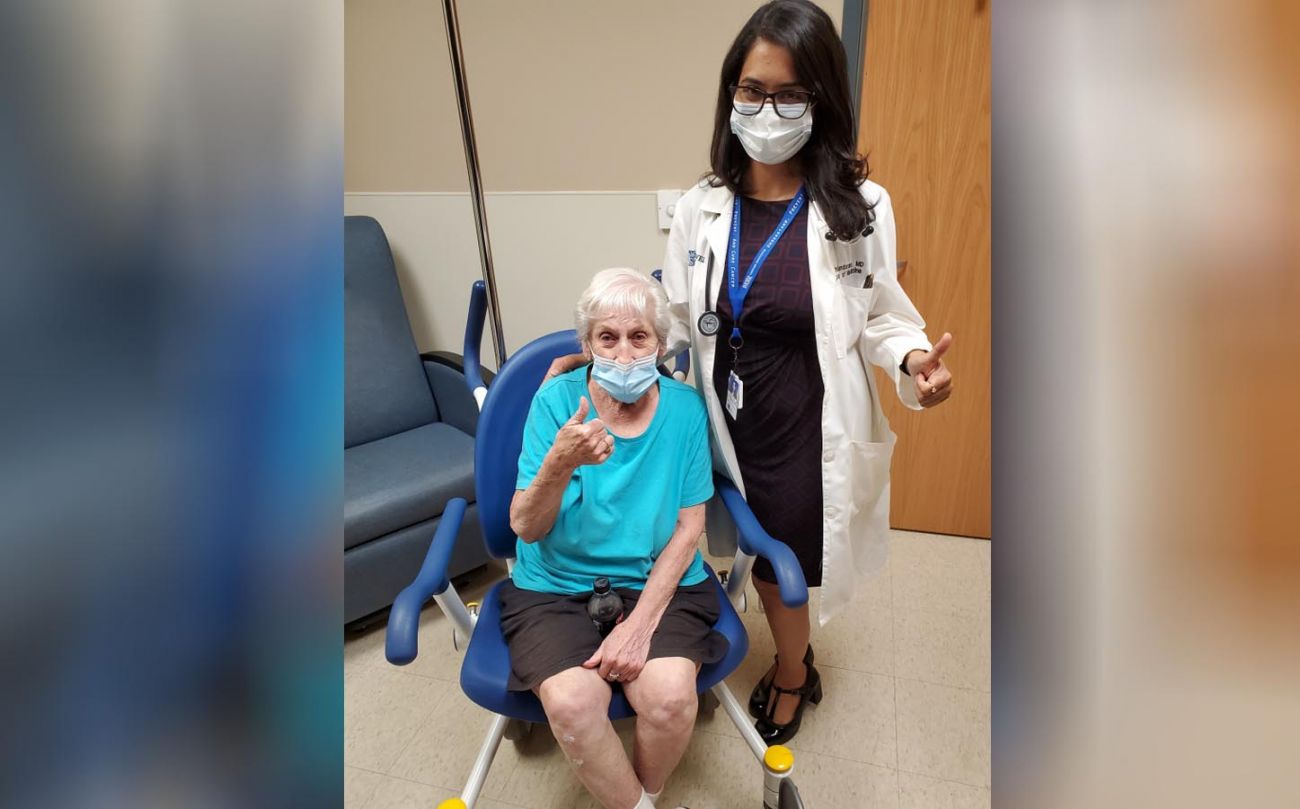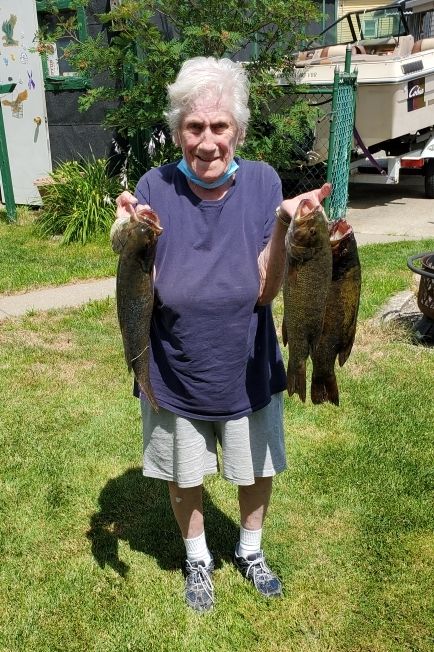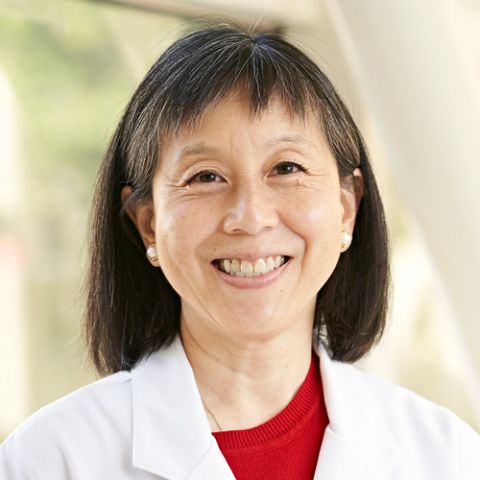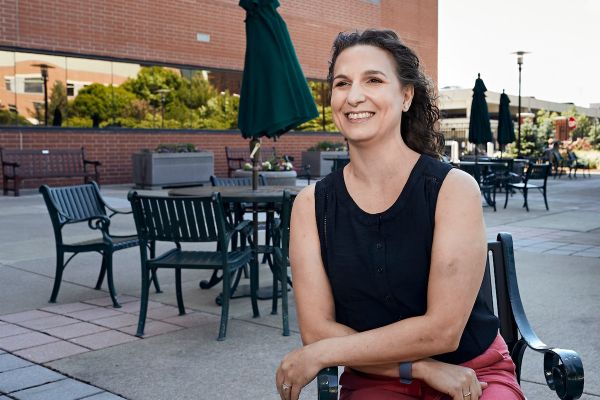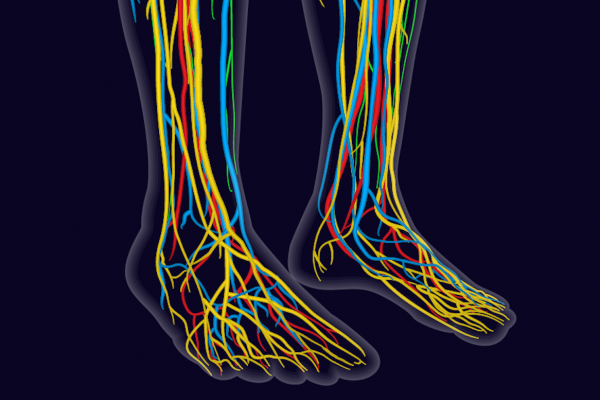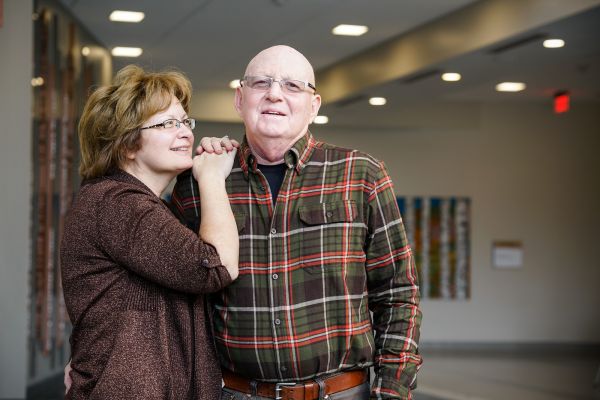Fighting two primary cancers, octogenarian angles for more time to fish and knit
Beating cancer is tough. Beating cancer twice is even tougher. When you hear Frances Lisiewski talk about doing it, you’d think it was as simple as flipping a light switch.
At 88 years young, she has survived both lung cancer and a rare form of lymphoma. Two successive cancer diagnoses would be enough to crush anyone’s spirit, but you don’t get that impression when speaking to her.
After feeling sick with a nagging cough, she spent two weeks in the hospital before a CT scan found something in her lungs — cancer.
“When I was told I had cancer, I thought about it and decided not to feel sorry for myself. You just have to go get treatment,” Lisiewski says matter-of-factly. She was always an advocate for Roswell Park as she watched her sister beat cancer three times. “There was only one place I knew that could take good care of me, so I called up Roswell. They asked, ‘Who referred you?’ and I said, I did!”
Lisiewski underwent surgery to remove stage 1 adenocarcinoma. Thoracic surgeon Elisabeth Dexter, MD, FACS, FCCP performed the surgery robotically, which uses very small incisions and tiny robotic tools to operate, a minimally invasive approach that results in less blood loss and speedier recovery than a traditional, open procedure.
“She is spunky and a fighter but also is a sweetheart and always wears fun earrings,” recalls Dr. Dexter. “She always was trying to give me these fun holiday earrings and will not take ‘no’ for an answer. She and I are kindred spirits because we are both ‘vertically challenged.’”
But during a surveillance CT scan at a follow-up appointment, a lump was found under her right arm. A biopsy was performed, which led to a new diagnosis: T-cell non-Hodgkin lymphoma. This news did not deter Lisiewski.
Her strong determination must run in the family. She was supported every step of the way by her brother David Forsyth, who is now her caregiver.
“She and her brother are very devoted to each other,” adds Dr. Dexter. “His wife died not too long ago, but he still supports Frances and accompanies her to all the appointments.”
“As a veteran of the Armed Forces, you learn quickly that life is precious,” Forsyth says. “There’s always hope. That’s something you know you can count on."
Lisiewski would need it as she was diagnosed with angioimmunoblastic T-cell lymphoma (AITL). Only 2% of all non-Hodgkin lymphoma diagnoses are AITL, which can be very aggressive and grow quickly. This form of the disease often does not respond to treatment.
“They told me if they don’t do anything about it, I might have six months. So, I decided to get off my buns and do something about it,” Lisiewski says proudly. “You have to stay positive. I said, ‘Let’s take care of this too!’”
At this time, Lisiewski and Forsyth met hematologic oncologist Suchitra Sundaram, MD, who had the difficult task of determining a treatment plan for a rare, aggressive cancer in a patient who was in her late 80s.
“Age was certainly a factor when deciding on her treatment,” says Dr. Sundaram, her Roswell Park oncologist at the time. “Often, the side effects of chemotherapy or radiation end up causing more pain for an elderly patient than the disease they have. With Frances, we had to find a way to treat her lymphoma and still find a way to preserve her quality of life.”
Treatments like chemotherapy can trigger peripheral neuropathy or a tingling or numbness in your hands and feet. Lisiewski needs her hands and fingers to function well in order to continue her favorite activities, knitting and fishing. Making sure she could still get out and do what she loves, was just as important to Dr. Sundaram as curing the lymphoma.
“For Frances, the best way to treat her was to use a targeted therapy so that we could minimize any side effects,” says Dr. Sundaram. A targeted therapy attacks the cancer, by targeting unique proteins or receptors found on only the cancer cells, leaving healthy cells alone and resulting in fewer and less severe side effects than other approaches such as chemotherapy.
Lisiewski’s AITL was treated with brentuximab vedotin, an FDA-approved drug designed to treat patients with aggressive lymphomas that might not respond to chemotherapy. The treatment was so effective, Frances went into remission after just three infusions.
“I like to use a saying ‘Once you choose hope, anything is possible,’ and that was the case with Frances,” says Dr. Sundaram. “I am a strong believer in her spirit and willpower. She is so positive and determined. I was so happy when she didn’t have any side effects from treatment. No neuropathy, organ damage or cytopenia.”
Lisiewski continues to receive monthly infusions to remain cancer-free and serves as an inspiration to many. She has become known for her knitting skills around Roswell Park as well.
“She also crochets colorful potholders and hands them out. So even when dealing with cancer, she is thinking of others,” says Dr. Dexter.
And she still reels in more fish than her brother.
“I’m still able to do all the things I love. Everyone is amazed at how active I am,” Lisiewski boasts. “They are telling me I shouldn’t be able to hold up all the fish I’ve caught, but I’m going to prove them all wrong.”
Editor’s Note: Cancer patient outcomes and experiences may vary, even for those with the same type of cancer. An individual patient’s story should not be used as a prediction of how another patient will respond to treatment. Roswell Park is transparent about the survival rates of our patients as compared to national standards, and provides this information, when available, within the cancer type sections of this website.
